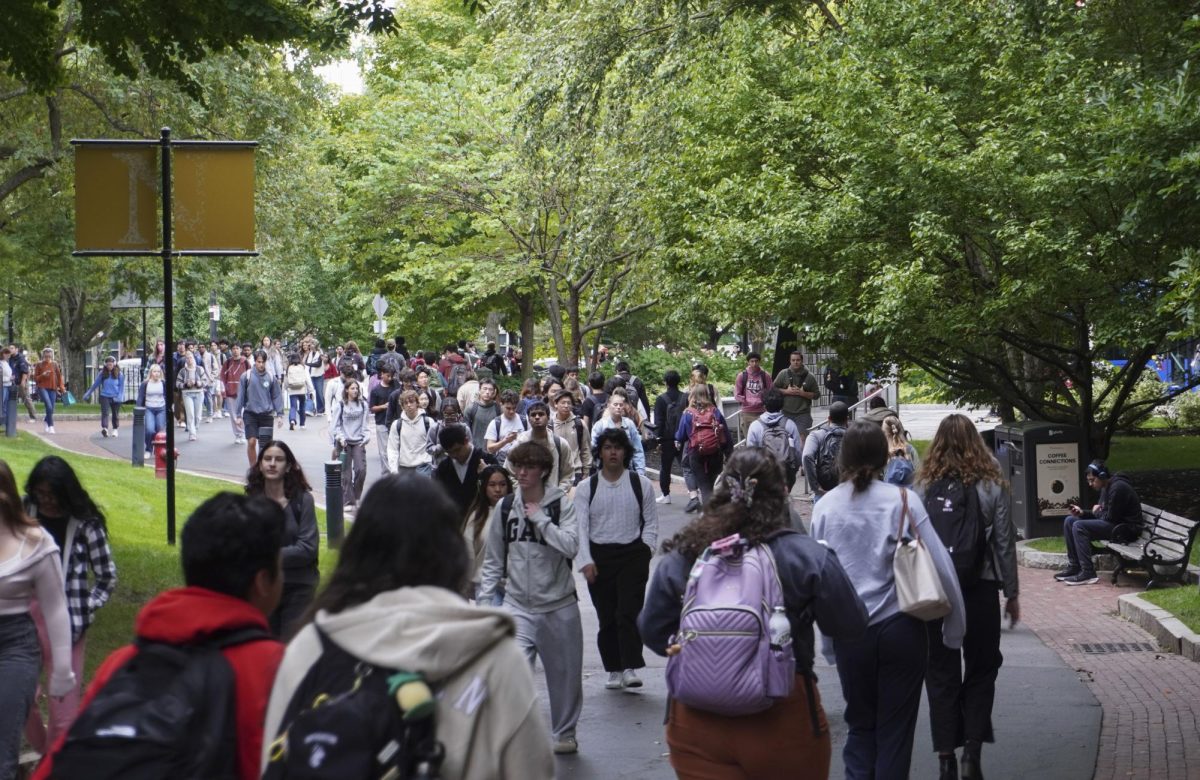By Kate Augusto and Pamela King
Despite less than a year to go in the George W. Bush presidency, the debate about his legacy in regard to higher education is just beginning. While there’s evidence of his support for easing the financial burden of students and colleges, critics say the two-term Republican hasn’t done enough to help families struggling to afford rising costs.
Some of Bush’s proposals aimed at helping college students, according to recent media reports, include funding in his $3.1 trillion budget plan for an 18.5 percent increase in spending for Pell Grants, which do not need to be repaid.
Bush also requested an increase in physical science research spending, but he has shown no interest in increasing spending for the National Institutes of Health, where colleges get most of their research funding
Research funding between 2001 and 2003 also increased by 13 percent and 529 college savings plans under Bush were made exempt from federal taxes. Finally, more students were relieved of student loans, and more than $1 billion in merit scholarship programs were created, according to recent media reports.
Political science professor Ronald Hedlund said that while Bush thinks he has made education a priority, Bush has failed to help students and their families in the long run. Hedlund also said Bush has failed to help colleges with their own costs.
“Costs in higher education have gone up for good reasons, and support from the government has gone down,” Hedlund said. In fact, Bush’s support for college students may be questionable as well. He has shown hesitation about both the Senate’s and House of Representative’s versions of the renewed Higher Education Act, though he has not threatened to veto either one, according to recent media reports. This act seeks to regulate student loan suppliers and control rising costs of tuition, among other initiatives.
Other critics say Bush takes too much credit, while simultaneously proposing the elimination of smaller grant programs. Massachusetts Senator Edward Kennedy, chairman of the Senate’s Education Committee, said in a statement to The News, “The Administration’s legacy on higher education issues is mixed at best. It took a Democratic Congress to finally make good on seven years of broken promises from President Bush to increase the Pell Grant. Throughout eight years in office, the administration also persisted in trying to kill vital programs that increase college access and preparation for our neediest students, such as the Perkins Loan and Upward Bound programs. The Administration has done next to nothing to recoup millions of dollars that were inappropriately paid to lenders through the ‘9.5 percent loans’ scheme, and it was Congress – not the administration – that provided relief to student loan borrowers by lowering student loan interest rates, expanding public service loan forgiveness, and creating new tools to help borrowers manage their loan debt more effectively.”
Joshua Robin, president of the NU College Democrats, said he thinks Bush’s legacy will be “one of a failed presidency and one of being blind to the challenges of the 21st Century.”
Robin said he does not believe Bush’s increases in federal financial aid programs will significantly change college students’ financial situations either.
“I don’t think he’s really done much for college education costs,” Robin said.
Some of Bush’s initiatives have attempted to help struggling American families with financial support, which may indirectly help families better afford higher education. One of these initiatives is the economic growth package, which, according to local media reports, will provide most Americans with a check later this year.
Even with a little extra cash, Jamie Waller, the former public relations chairman for the Northeastern Republicans, said there is an embedded hatred toward Bush that affects how people view him.
“[People are] still going to find 1,001 other reasons to hate the man,” he said.
– News staff writer Anne Baker contributed to this story.









